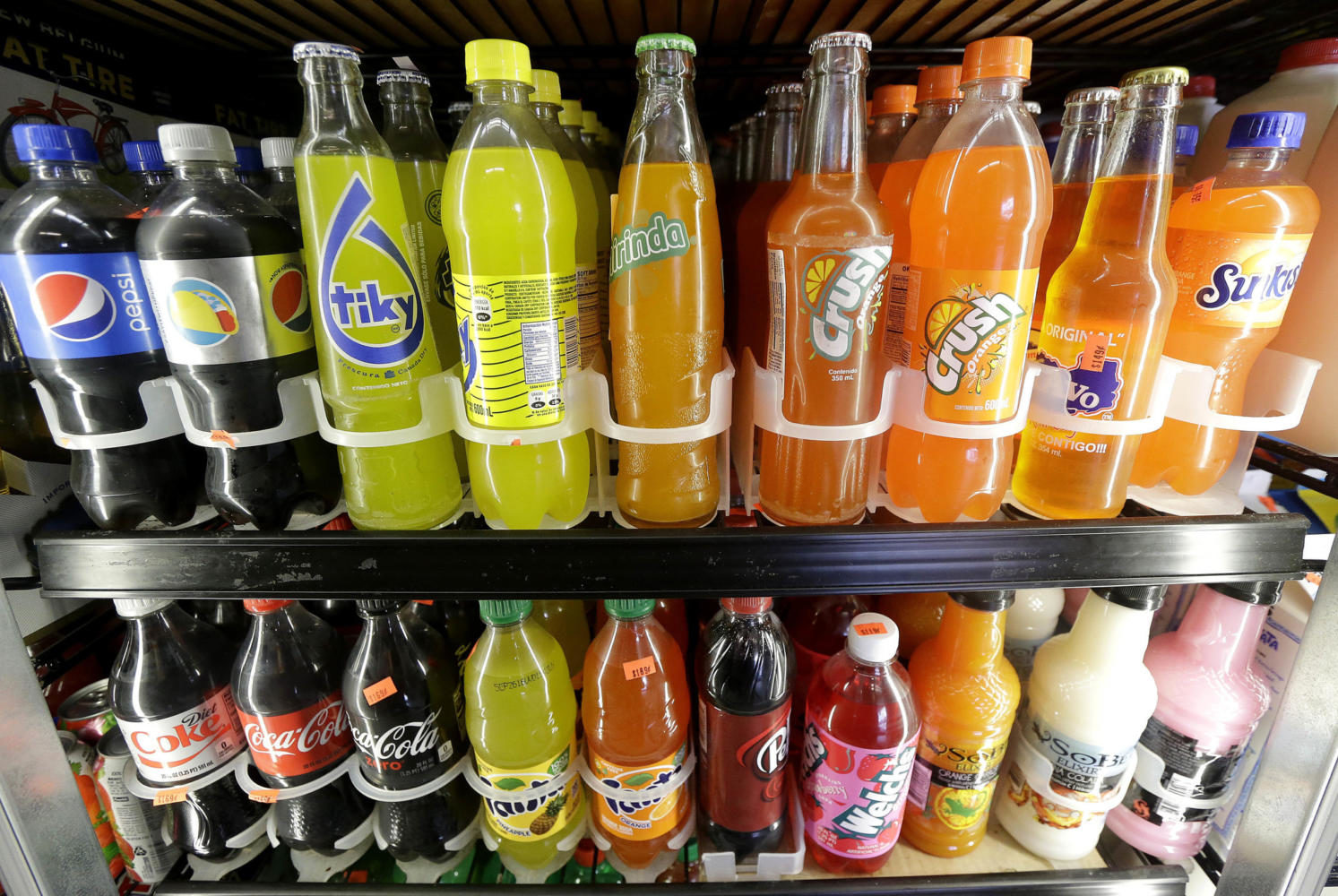Soda tax provokes changes, confusion at local businesses
August 4, 2017
Di Nico’s Pizza in La Grange is no longer giving away free drinks with every slice of pizza sold at the establishment, changing their policy on Wednesday as a result of Cook County’s new penny-per-ounce tax on soda and sugary drinks going into effect, a store manager told The LION.
Bob Dunne, general manager at Di Nico’s, said that “because of how much the tax went up” their soda expenses would have increase somewhere between $10,000 to $100,000—potentially even more—if they didn’t begin charging, he said.
“In order for us to take the hit,” Dunne said, “what we have to do is instead of eating up all of that cost we used to eat, we have to” charge the consumer, noting that they are still taking a hit by offering the soda at the price they are now.
The restaurant began to charge 45 cents for their soda, but they increased the size of the cups from 12- to 16-ounces in order to make the change more palatable to patrons.
Eating outside the restaurant Wednesday, Steve Carlson “didn’t realize it [the soda] was going to be more expensive,” but “he wasn’t too concerned” because he still thought it was a good deal. But Dunne said that for everyone who doesn’t mind the change—many others will.
“We’re going to have different opinions,” Dunne said. “For the people that are going to be nice about it and are actually going to say, ‘That’s not a problem, OK.’ You’re going to have at least 10 more people who are going to say, ‘What’s going on? Why am I am I paying for this?’”
The roll-out of the soda tax has been mired in legal challenges which has lead to a sense of confusion percolating among managers and consumers alike. On the day the tax went into effect, many managers at local businesses didn’t know the tax had been implemented until being notified by a reporter for The LION.
Marie Morgenthaler, assistant manager at the Hot Dog and Burger Company, said that when the tax was first held up by in the courts in June, it left both her and her customers confused.
“It just seemed like, oh, well, I thought it already was in effect, but I guess it wasn’t,” Morgenthaler said. “A lot of customers asked, ‘this includes the tax, right.’ And it is like, from my understanding I thought it was, but I guess not—the tax hasn’t started yet. So it did seem like it was maybe a little bit unorganized.”
While being largely dubbed the “Soda Tax,” soda was not only thing being taxed. Any drink that is sweetened—or artificially sweetened—would be subjected to the tax, including juices that aren’t 100 percent juice, energy drinks and an array of other drinks.
The tax was crafted to exempt certain individuals, such as those on food stamps. But it also exempted made-to-order drinks like coffee at Starbucks or other businesses where a person crafts the drink when ordered.
When purchasing a drink that is not exempt, the tax is suppose to be included in the sales prices of the drink, but many businesses said that they are attempting to cover the tax. Either way, others may just pass that cost along to the consumer—even if they initially try to take the hit.
“Ultimately, what’s going to happen is we’re going to have to raise our prices on soda,” said Andrew Barnard, General Manager at Aurelio’s Pizza in La Grange. Barnard is one of the manager trying to avoid raising their prices. “It’s unfortunate, but it is just how we have to do it.”
Barnard said that they are going to have to grapple with whether or not they can take the hit or whether they will have to pass it along to the customers.
“It is irresponsible [how the county has implemented the tax],” Barnard said. “We’re in the dark with this stuff, but we play by the rules. We’ll do what we have to do, and we’re going to try to absorb the cost of the tax, but there is only so much that we can do; We operate on very tight margins here.”
In response to Barnard’s comment, Frank Shuftan, a spokesperson for Cook County President Toni Preckwinkle, called the accusation “nonsense,” noting details were released in March.
“There was plenty of time to clear up any so-called ‘confusion,’ ” Shuftan said. “Any claim, such as that by IRMA [The Illinois Retail Merchants Association], that the tax was rushed is nonsense.”
Shuftan added that there was nothing irresponsible in creating a tax that would help fund the county and have health benefits.
“Is it irresponsible to balance a budget? Is it irresponsible to properly finance jobs in public health and public safety? Is it irresponsible to select a revenue option that will have clear benefits on people’s health?” Shuftan said.
A lot of the confusion, though, seems to stem from the turmoil in the courts.
The soda tax was slated to take effect back on July 1—over a month before it actually did—but the roll-out was stymied by a lawsuit filed by IRMA questioning the law’s constitutionality, arguing that it violated a provision requiring uniform taxation.
On June 28, however, a judge rejected their claim, but the association filed an appeal on Tuesday. Despite the appeal, the tax was still allowed to go into effect on Wednesday and be collected.
The county—which is in desperate need for more revenue and is threatened to lay-off employees and cut services if it the tax it didn’t begin—lost 17 million dollars in potential revenue due to the month-long legal challenge, the county claims.



















![Movie poster for '[Rec]" (2007).](https://www.lionnewspaper.com/wp-content/uploads/2023/04/rec-640x900.jpg)



